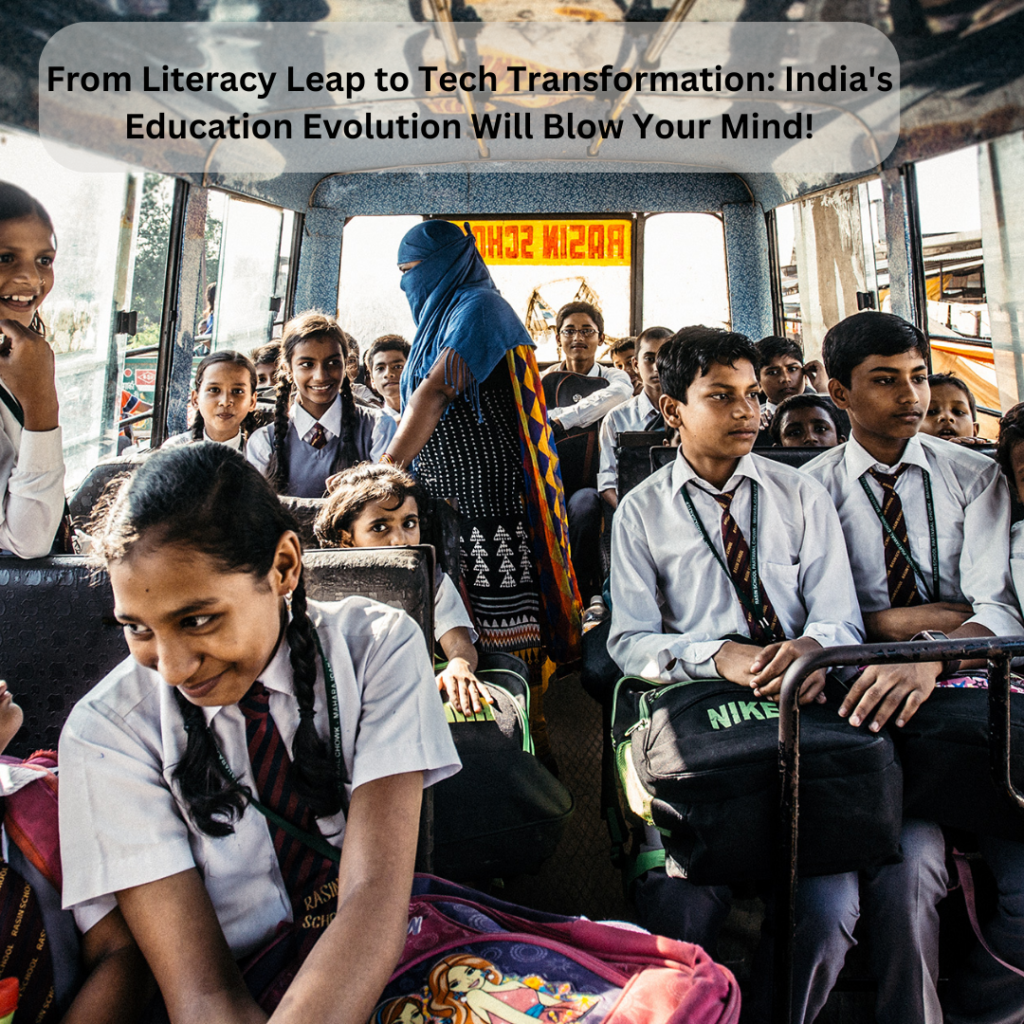Since gaining independence in 1947, India’s education system has undergone remarkable changes. Initially, the primary focus was on expanding access to education, especially for marginalized groups like women and the underprivileged. Investments were made in constructing new schools and colleges, leading to a significant increase in the literacy rate from 18 percent in 1951 to 74 percent in 2011.

In recent years, the spotlight of education reform has shifted to improving educational quality. Initiatives like the National Curriculum Framework (NCF) 2005 and the National Education Policy (NEP) 2020 have been introduced to align education with the demands of the 21st century. This has resulted in changes to curricula, teaching methods, and assessment practices across educational institutions in India.
Here’s a glimpse of key changes in India’s education system since 1947:
- Expanded Educational Access: The number of schools and colleges has seen a remarkable increase. In 1951, there were around 1.4 lakh schools, which grew to 15 lakhs by 2020. Similarly, the number of colleges expanded from 578 in 1950-51 to 42,343 in 2020-21.
- Improved Literacy Rates: India’s literacy rate has surged from 18 percent in 1951 to 74 percent in 2011, significantly improving lives.
- Curriculum and Pedagogical Changes: Recent years have witnessed the introduction of new curriculum frameworks and teaching methods, aimed at making education more relevant and enhancing learning quality.
- Focus on Vocational Education: Recognizing that not all students will pursue higher education, there has been an increased focus on vocational training to equip students with practical skills for employment.
- Integration of Technology: Technology has become increasingly important in education, with schools and colleges using tools like laptops, tablets, and interactive whiteboards to enhance learning experiences.
India’s evolving education system reflects a commitment to progress, ensuring broader access, relevant learning, and skill development for a modern world.

